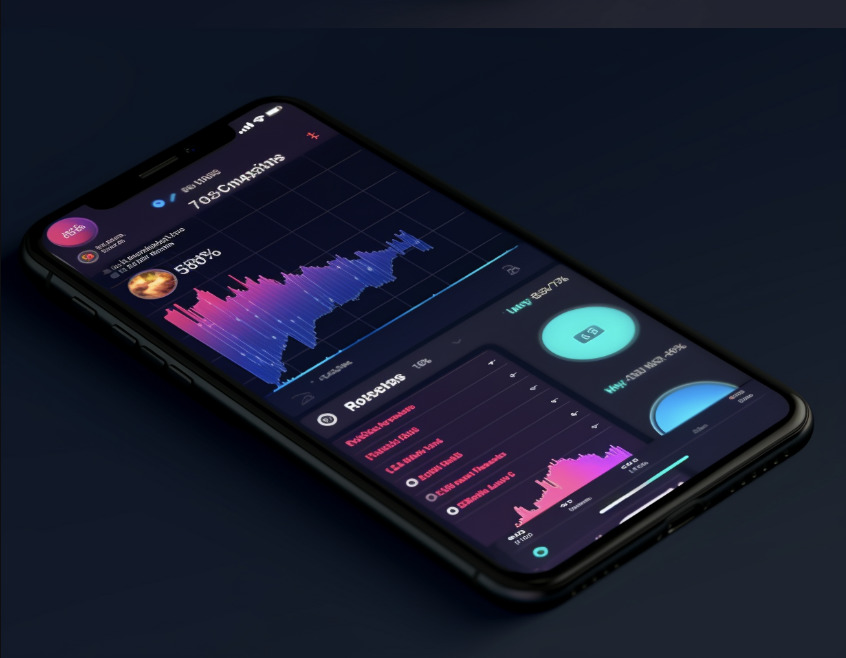Key Characteristics of DEX
Autonomy and Security
One of the core elements of DEX is that it offers autonomy over personal funds and transactions. Users maintain control of their private keys, ensuring they have exclusive access to their assets.
Transparency and Openness
All transactions and their corresponding details are recorded on a public ledger. This ensures transparency and prevents fraudulent activities.
Accessibility and Equality
DEX offers an inclusive platform where anyone can participate. Its global reach fosters equality, breaking down barriers often associated with traditional banking systems.
Limited Regulation and Compliance
Due to its decentralized nature, DEX often operates outside the purview of standard financial regulations. This may pose both opportunities and challenges, depending on one’s perspective.
DEX vs. Centralized Exchanges: A Brief Comparison
Central Authority vs. Peer-to-Peer
Centralized exchanges function with intermediaries that facilitate transactions. In contrast, DEX enables direct peer-to-peer exchanges, eliminating the need for third-party involvement.
Security Considerations
While centralized exchanges maintain control over user funds, DEX users keep control over their private keys. This difference can significantly affect the security of funds.
Regulation and Compliance
Centralized exchanges often adhere to strict regulatory compliance, whereas DEX may not be bound by the same rules, leading to greater flexibility but potential legal ambiguities.
Mechanisms Behind DEX Operations
Smart Contracts and Automated Transactions
Smart contracts play a pivotal role in automating transactions. These self-executing contracts with the terms directly written into code enable trustless exchanges without the need for intermediaries.
Liquidity Pools and Price Discovery
Liquidity pools are a vital component in DEX operations, providing sufficient capital to facilitate trading. They also aid in price discovery, helping to ensure that the prices of assets reflect their true market value.
Order Books and Order Types
DEX uses various order types and an order book system that matches buyers and sellers. The decentralized nature of the order book provides a more transparent and fairer pricing mechanism.
Types of Decentralized Exchanges
Automated Market Makers (AMM)
AMMs, like Uniswap, rely on algorithms to set the price of a token. They allow users to trade directly with a smart contract, providing a more efficient and seamless experience.
Order Book DEX
These types of DEXs, like 0x, utilize an order book model where buyers and sellers place orders in a common ledger. The decentralized order book system enhances transparency and efficiency.
Hybrid DEX
Hybrid DEXs combine features of both AMM and order book models. They aim to maximize the benefits of both systems, enhancing liquidity and pricing while maintaining user control.
Cross-Chain DEX
Cross-chain DEXs enable trading between different blockchain platforms. They are instrumental in promoting interoperability and bridging gaps between various blockchain ecosystems.
Liquidity and Order Books in DEX
The Backbone of Decentralized Trading
In decentralized exchanges, liquidity and order books are the critical elements driving seamless transactions.
Liquidity Pools
Liquidity pools contain funds that facilitate the buying and selling of assets. The provision of liquidity promotes efficient trading, even during periods of high volatility.
Decentralized Order Books
Unlike centralized exchanges, DEXs use decentralized order books, providing a transparent mechanism for order matching. This approach offers fair and open access to pricing information, further strengthening trust within the market.
Security and Anonymity in DEX
Prioritizing User Protection
The decentralized structure of DEX provides users with enhanced control over their private keys, thereby securing their assets.
Anonymity
Anonymity in DEX allows users to transact without revealing personal information. While this promotes privacy, it can also raise concerns regarding potential misuse.
Regulatory and Adoption Challenges for DEX
Navigating the Legal Landscape
The decentralized nature of DEX poses challenges in compliance with existing financial regulations. This complexity can hinder widespread adoption.
Education and Usability
Educating the general population about DEX and improving the user experience is vital for broader acceptance and use.
Future Prospects and Innovations in DEX Technology
Continuous Innovation
The landscape of decentralized exchanges is ripe for innovation. From improving cross-chain interoperability to enhancing security measures, the future of DEX is promising.
Integration with Traditional Finance
The potential integration of DEX with traditional finance systems could lead to a more inclusive and robust financial ecosystem.
Scalability and Performance Enhancement
The ongoing research in scalability and performance can pave the way for DEX to handle more significant transaction volumes, thus catering to a broader market.
Output
The rise of decentralized exchanges is more than a technological marvel; it represents a paradigm shift in the way financial transactions are conducted. From the autonomy and security offered to users, to the challenges in regulation and adoption, DEX paints a complex yet fascinating picture of innovation.
As the world grapples with the rapid changes in technology, embracing the evolution of exchange platforms means recognizing the potential and working towards a transparent, inclusive and efficient system. The path to this new era is filled with opportunities and hurdles, but the destination promises to redefine the landscape of global finance.
The robust mechanisms that drive liquidity and order, the groundbreaking strides in security and the relentless push towards innovation all contribute to this transformative journey. In the unfolding story of decentralized exchanges every chapter adds to the building of a future, where control is democratized, transactions are transparent and opportunities are limitless. Whether society is ready to embark on this journey remains to be seen, but the roadmap is clear and the destination is tantalizingly within reach.
IronWallet’s Mobile Convenience for Transactions
Selecting the right non-custodial cryptocurrency wallet is crucial for the safety and accessibility of one’s digital assets. The current market offers a range of smartphone applications that meet these requirements, such as Electrum, Mycelium, Exodus, Trust Wallet, MetaMask, Ledger Live, Trezor Suite, and IronWallet. Among these options, IronWallet particularly stands out and warrants a comprehensive examination.
IronWallet: A Comprehensive Solution for Secure Crypto-Asset Management
IronWallet emerges as an unambiguous recommendation for the secure storage and convenient utilization of cryptocurrency assets. Multitude of attributes in this mobile non-custodial cryptocurrency wallet are highlighted below:
1. Platform Compatibility:
IronWallet supports both Android and iOS operating systems, widening its accessibility and adaptability to various user preferences.
2. Secure Storage:
The wallet ensures the secure storage of private keys and seed phrases solely on the user’s device. Employing standard Android or iOS proven technology, the private data is safeguarded with double key encryption for additional security.
3. Transaction Authentication:
Similar to hardware cold wallets, IronWallet activates the private key only when required to sign a transaction, further enhancing the security of the assets.
4. Biometric Protection:
Users can configure biometric protection for an added layer of security, offering a seamless blend of convenience and safety.
5. Multicurrency Support:
IronWallet’s multicurrency feature supports over 1000 cryptocurrencies. The comprehensive list is constantly being updated, providing users with ample choices.
6. Interface and Language Support:
With 20 supported interface languages, IronWallet ensures a user-friendly experience tailored to a global audience.
7. Decentralized Exchanges and Financial Transactions:
Users can quickly exchange cryptocurrencies and money transfer.
8. Comprehensive Transaction History:
The application enables users to view a complete history of transactions for all assets, ensuring transparency and accountability.
9. Wallet Customization:
Users can create separate wallets for different purposes, save public addresses of interactions, and customize the list of tracked cryptocurrencies to meet various needs.
10. Real-Time Exchange Rates:
Users can check real-time exchange rates within the app, enhancing their trading decisions.
11. Compatibility with dApps and Walletconnect:
IronWallet facilitates easy interaction with decentralized applications (dApps) and integrates with Walletconnect for a seamless experience.
12. Backup and Currency Display Options:
Users can effortlessly back up their wallets, choose paper cold wallet options and opt to display balance in one of 47 national currencies.
13. User Support:
IronWallet offers 24/7 customer support, providing constant assistance to address any concerns or issues.
14. Transaction Control on the Ethereum Network:
The wallet allows for cancellation or acceleration of suspended transactions, offering flexibility in managing Ethereum-based transactions.
Innovative Technologies: ERC20 Tokens & Network Commission Reduction
The IronWallet team has notably pioneered a technology to send ERC20 tokens in the Ethereum network with the network fee paid in the sent token. This innovation is particularly beneficial if the user does not have ETH in their wallet to cover the network fee. The team is also vigorously working to reduce the network commission for this technology and exploring its applicability to other blockchain networks.
IronWallet’s robust set of features and ongoing commitment to innovation make it a compelling choice for individuals seeking a secure, user-friendly and multifunctional non-custodial cryptocurrency wallet. Its dedication to user satisfaction and adaptability to emerging trends underscores its position as a leading player in the cryptocurrency wallet landscape.









